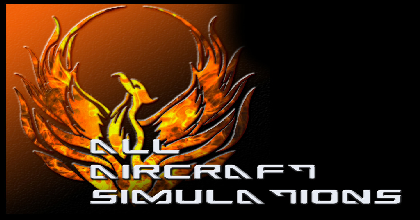30.10.2008, 10:46
Another is to remember to cut throttle as you turn. Also, you can punch it and force your pursuer to hit high speeds to get at you. When you turn and black-out, so will he if he turns :twisted: This often eliminates his initial advantage since if he blacked-out he will probably have lost position, and if he did not turn he will have over-shot. The risk is that you fail to recover from black-out before he loops back.
Spitfire and La pilots typically believe that black-out is modelled more severely in their aircraft than in others. Back when I was newbier and actually debased myself by flying Spits and the occasional La, I also had that opinion.
They're wrong, and so was I. B/O is modelled the same in all aircraft. What that view reflects is the fact Spits and La's are not only hyper-fast, but hyper-agile. The aircraft does not seem like it's going as fast as it is and it turns really, really quickly (Spits can turn with helicopters; La's can out-turn helicopters; and I-185's can out-turn UFO's ... a Yak-3 can do all three, but only if you know how to fly it). Because of this their pilots swing into a turn and black-out instantly because they were A: Going faster than they thought, and B: Turned tighter than they thought and the lights went out in Georgia.
The elevator trim trick is vital. I have avoided many crashes using it 8)
BTW: roger-wilco.
Your name is a redundancy.
Roger means: "I have received and understand your transmission."
Wilco means: "I have received and understand your transmission and will comply." (WilCo, from WILl COmply)
The meaning of Roger is included in Wilco, since one could hardly comply with something one neither received nor understood.
Thus, your name means "I have received and understand your transmission-I have received and understand your transmission and will comply."
It's sort of like saying "Over and Out!" except that that is a contradiction. Over indicates you have more to say and are expecting a reply; Out means you have said everything you have to say and are completely done. Thus, you are either Over, or you are Out. Say that in the military and you're going to hear: "So-and-so, this is me: Are you Over, or are you Out? Over."
Spitfire and La pilots typically believe that black-out is modelled more severely in their aircraft than in others. Back when I was newbier and actually debased myself by flying Spits and the occasional La, I also had that opinion.
They're wrong, and so was I. B/O is modelled the same in all aircraft. What that view reflects is the fact Spits and La's are not only hyper-fast, but hyper-agile. The aircraft does not seem like it's going as fast as it is and it turns really, really quickly (Spits can turn with helicopters; La's can out-turn helicopters; and I-185's can out-turn UFO's ... a Yak-3 can do all three, but only if you know how to fly it). Because of this their pilots swing into a turn and black-out instantly because they were A: Going faster than they thought, and B: Turned tighter than they thought and the lights went out in Georgia.
The elevator trim trick is vital. I have avoided many crashes using it 8)
BTW: roger-wilco.
Your name is a redundancy.
Roger means: "I have received and understand your transmission."
Wilco means: "I have received and understand your transmission and will comply." (WilCo, from WILl COmply)
The meaning of Roger is included in Wilco, since one could hardly comply with something one neither received nor understood.
Thus, your name means "I have received and understand your transmission-I have received and understand your transmission and will comply."
It's sort of like saying "Over and Out!" except that that is a contradiction. Over indicates you have more to say and are expecting a reply; Out means you have said everything you have to say and are completely done. Thus, you are either Over, or you are Out. Say that in the military and you're going to hear: "So-and-so, this is me: Are you Over, or are you Out? Over."
